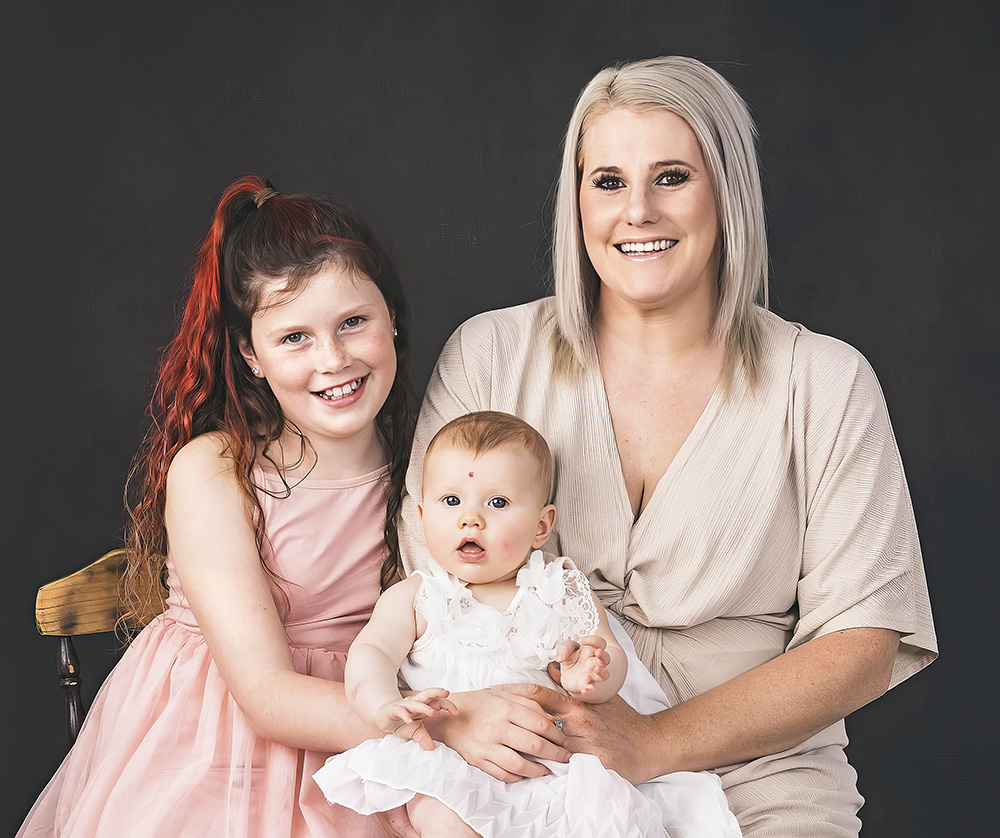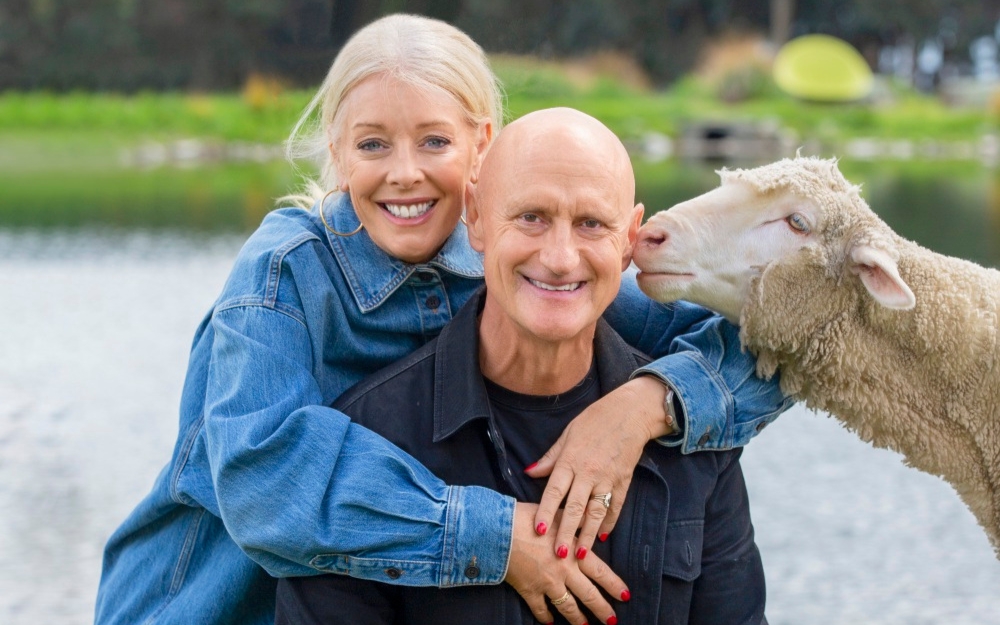Relaxing on her sprawling Wellsford property with a 500kg pet cow sleeping in her lap and dozens more grazing nearby, Lis Martinac is completely at peace.
The idyllic scene is the result of the mother-of-three’s dream to showcase and share with others what wonderful and useful pets cows can be.
Alongside dedicated partner Peter Whitehouse, Lis runs Rise To Shine Farm breeding, raising and training house cows and pet cows for others, saying it’s a way to give the animals a loving home and a purpose in life.
“A house cow is a tame cow that will come when called, stand there and let you milk it by hand every day,” explains Lis, 43, clearing up the common misconception that her cows live inside.
While they’re not welcome in the family home, they are quite exceptional, know their names, and enjoy cuddling up for a good pat and a nap.
“If I call their name, they come like a dog. It’s incredible and I didn’t know that depth of connection was possible.”
It all started in 2021 when Lis adopted Mabel, a then- four-year-old ex-dairy cow, and challenged herself to train it.
Pasture bedtime?!
“She wasn’t a pet or friendly at all, so it took the best part of six months to earn her trust and vice versa because I needed to trust this big animal wasn’t going to stand on me or kick me while I was milking her.”
Slowly they developed an undeniable bond as Lis provided a predictable routine, a steady supply of treats and attention, and sang to Mabel while milking her.
“I really enjoyed the training, but more so, I really enjoyed the relationship that came with it. Once Mabel understood the routine, she would always be waiting at the gate for me.”
Lis says cows are incredibly intelligent and sensitive animals, much more so than people generally give them credit for.
In fact, Mabel and her fellow paddock mates even have favourite songs they prefer to be milked to.
“They all love Baba Hanuman by Krishna Das,” tells Lis. “Mabel gets really peaceful and quiet, and goes into her happy zone. Sometimes I get bored singing the same song for 20 or 30 minutes and try to introduce a new song, but she’ll flick me with her tail. She’s definitely got her playlist!”
She’s now trained five house cows and also socialises any male calves born on their property to be pets.
Becoming more self-sufficient and sustainable was one of the motivations for her and Peter. They breed specific types of cows from more ancient beeds, which are smaller, making them easier to birth and leaving a gentler footprint on the land.
The milk they get each day provides their family-of-five with enough to make their own cream, butter and cheeses.
Living in close partnership with nature has always been the goal for Lis, who grew up on her grandparents’ West Auckland farm.
“I didn’t have any milking experience, but it was a typical farming childhood, which gave me a really beautiful connection with land, nature and animals,” says Lis, who wanted her children Skyla, 19, Reef, 16, and Amala, six, to experience the same benefits she did.
“My six-year-old is a calf whisperer. She sits in the paddock, and all the little calves come and give her kisses.
There’s no need to steer clear of gentle Gemma!
“My eldest daughter works on a dairy farm and she’s trained some of our cows so she can sit on their back like a horse. And my son often goes and sits with them, just hanging out. We all love it.
“It’s a really mindful practice. When we sit and connect with them, nothing else matters. None of our cows have ever hurt us, but it would be very easy for them to if they wanted. They’re huge and could push us around, so if a cow puts their head in your lap, is falling asleep on you or kissing and cuddling you, it’s a gift we really appreciate. They’re incredibly gentle and loving, and it’s just a really beautiful experience.”
Lis juggles her passion for cows with her day job in architectural drafting, but hopes to be working with her beloved bovines for as long as possible.
“We want to continue providing as many house cows as we can train for people, giving those cows a happy life where they’re not just seen as burgers,” she enthuses. “Once people experience the heart connection, it’s really just like having a dog and you fall in love with them.”
 Robert Trathen
Robert Trathen

